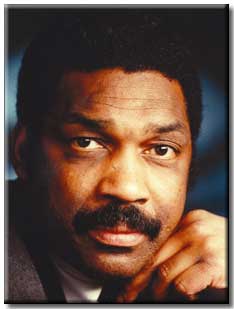Every once in a while you get introduced to someone who will change your life, and the way you view the world, forever. In the winter of 2000, I was in a downtown Manhattan hotel room with a bad case of insomnia after a long day of trying to figure out how to "kill" Napster for one of McKinsey's media company clients. Suddenly, I was jolted to attention by a TV interview. Some guy was talking about charities that earn their own revenue instead of depending on handouts, introducing a term--social enterprise--that was conspicuously missing from all of my business school classes.
Turned out that the "guy" was Billy Shore, founder of Share Our Strength,
 one of the world's leading hunger relief organizations and a former senior staffer for U.S. Senators Gary Hart and Bob Kerrey. The interview was to support his is book, The Cathedral Within, which does a masterful job of explaining "community wealth" (his term for social enterprise) and uses SOS and other great nonprofits as convincing case studies. A couple of years later, I met Billy (a fellow Pittsburgher now based in Washington, DC) and we became fast friends. Just goes to show that life has a way of producing mysterious, wonderful twists and turns, even when you're not paying close attention.
one of the world's leading hunger relief organizations and a former senior staffer for U.S. Senators Gary Hart and Bob Kerrey. The interview was to support his is book, The Cathedral Within, which does a masterful job of explaining "community wealth" (his term for social enterprise) and uses SOS and other great nonprofits as convincing case studies. A couple of years later, I met Billy (a fellow Pittsburgher now based in Washington, DC) and we became fast friends. Just goes to show that life has a way of producing mysterious, wonderful twists and turns, even when you're not paying close attention.*****
Like Billy Shore, Bill Strickland is a good friend, a hero for the planet, and a force of nature that has dedicated his life to changing the world. If you haven't heard of Bill Strickland then click on this link right now: it's an interview that I did with him for Globeshakers.

Bill founded an organization on Pittsburgh's tough north side (or norside in Pittsburgh-ese) almost 40 years ago called the Manchester-Bidwell Corporation which includes the Bidwell Training Center and the Manchester Craftsmen's Guild. MBC provides job training programs to adults and arts programs to high schoolers. But it's not what MBC does that's so different. After all there are lots of these programs around the world. It's how and where they do it--in a building designed by a student of famed architect Frank Lloyd Wright, filled with orchids (grown in MBC greenhouses) and beautiful artwork, the sounds of jazz and the smells of freshly cooked cuisine filling the hallways.
And its hard to argue with the results. For example, less than half of kids entering Pittsburgh high schools graduate but nearly 90% of MBC's students, drawn from the same population, get their diploma with nearly 90% of those continuing their education in trade schools, community colleges, and universities. When I was CEO of the Accelerator, we were lucky to have MBC as one of our portfolio ventures.
And Strickland is a social entrepreneur par excellence. Lab technician training programs with Bayer Corporation, sales of award-winning orchids to local supermarkets, and the expansion of MBC to cities like San Francisco, Grand Rapids, and Cincinnati. MCG Jazz, MBC's record label, has won four Grammy Awards and, led by Executive Producer Marty Ashby, maintains one of the longest running jazz concert series in the U.S., its stage graced by legends like Dizzy Gillespie, Herbie Hancock, and Nancy Wilson.

Just out is Bill's new book, Make the Impossible Possible. The subtitle pretty much says it all: One Man's Crusade to Inspire Others to Dream Bigger and Achieve the Extraordinary. I don't get to read nearly as much as I'd like but I put this one on top of the stack (which, if toppled, could cause serious personal and physical damage) as soon as I got it. And I wasn't disappointed. It's an inspiring and uplifting primer for social entrepreneurs, those who support them, or anyone interested in new ways to fix old problems. But don't just take it from me--even my Mom loved it!
Make the Impossible Possible is a must read for anyone interested in Shaking Up The Globe.


